The Power of Social Media; Does It Enhance or Swallow Up Relationships?
Today, absolutely everyone has been impacted by social media. Celebrities daily lives are among the first to be posted online, followed by our friends’ posts, then posts of others we may not even know.

However, having many online friends does not mean we truly know all of them. It is safe to assume that when one starts their social media account (e.g., Facebook, Twitter or Instagram), the person adds their real-life friends and family members first. As the person familiarizes themselves with social media, she/he begins to add friends of their friends, acquaintances, etc.
In terms of connecting; we do connect with our close friends on an emotional and interpersonal level, when we post or comment on each others’ social media updates, or upload photos of each other. What is posted can definitely cause any emotion in an individual, groups of individuals, and worldwide. However, if we are in the same room physically, and are browsing through social media feeds, that is when we are not connecting at all whatsoever.
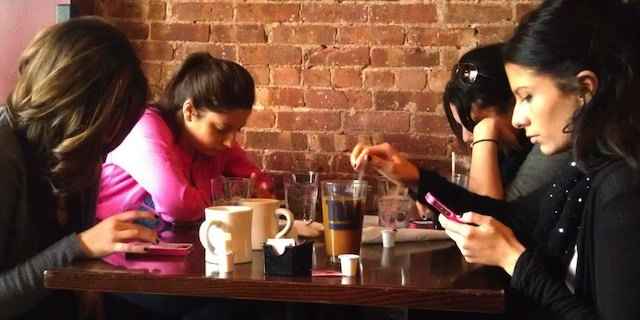
It is without a doubt that social media does have the power to isolate people in an environment for community spirit. Take for example the photo above, where a group of women are looking at their own phones, instead of engaging in a conversation. This has been seen many times in other environments, such as movie theatres, parks, and the like.
Through social media, we tend to see the best moments our friends or family go through. It is not often when someone posts a bad experience they’ve had, or a photo of themselves that may not be so flattering. Curiously, there is a saying that goes that those who “show-off more”, tend to be the least happy. This can be said true for many people who constantly use social media. For instance, there have been many studies that have proven that happier couples do not find the need to post about being together on social media. They do no seek validation from others and do not feel like they have anything to prove. They deal with their conflicts offline because it is always better if a third party does not voice in their opinion, if they do not know all the details and cannot feel what the couple feels. It is natural that when you are happy with your life, you are more present to it.
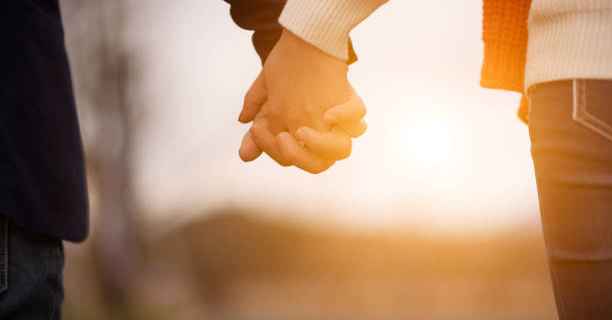
There is no doubt that only by knowing and interacting with a person in real life does one truly know her/him and what they are going through. But we do not really know people we have met for the first time on social media.
Unfortunately, it is without question that social media platforms have been used for negative motives, among them bullying or cat fishing. Bullying can vary from commenting that someone is “too skinny”, or posting a video online that uses foul-language talking about someone else. Cat fishing entails pretending to be someone else. There is always a high risk of going on a “blind date”, and end up meeting someone who is completely different from what they posted on let’s say the Tinder app. Social media platforms may help deteriorate or build fake relationships.
Privacy in a Public World
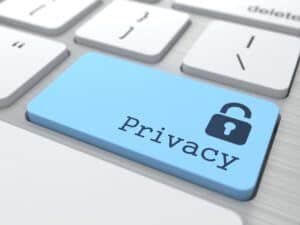
It is necessary to have extra precaution when we add strangers to our social media platforms. Both adults and youth are highly recommended to keep all of their information as private as possible, because you never know who is behind another computer. For instances, there have been incidents where people have had others create a fake account, using their name and photos previously posted by the actual person. Or you expect to meet “the man/woman of your dreams” as depicted in their online profile photo, but he/she turns out to look completely different. Also, it is widely known that people’s accounts have been hacked before, unfortunately.
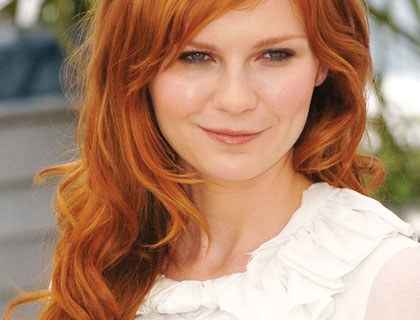
Celebrities are definitely not left out. From the celebrity hacks in 2014 to 2018’s sexual assault allegations, celebrities are affected by social media platforms as much as the general public. The biggest difference between celebrities and us is that their lives are known worldwide, so if their reputation is at stake, it is in the eyes of the whole world. One of the biggest celebrity hacks occurred on August 31, 2014. Imageboard 4chan leaked nude photos of celebrities (including those of Jennifer Lawrence, Jill Scott, and Kirsten Dunst), proving this false sense of security. Dubbed as the Fappening, this leak brought forth the issue of privacy and security to the forefront of media attention.
Reactions towards this incident came flooding in. Jennifer Lawrence received Josh Hutcherson’s support via US Weekly Magazine, he stated: “I just think all that stuff is ridiculous…It’s something you obviously don’t want to happen to you and it’s really unfortunate that it happens. I hate the way the world sort of views those sorts of issues.” Fortunately, this incident did not damage the friendship between Lawrence and Hutcherson. It actually strengthened it.

But this was not the same case during 2018’s sexual assault allegations. Many well-known public figures’ careers came to a rough halt after many actresses starting speaking up on sexual assault in Hollywood. Emma Thompson was among the first to make it well-known to the public, that Harvey Weinstein was “a bully and a predator” via The Guardian. After many more actresses started speaking up, like Gwyneth Paltrow and Angelina Jolie, Weinstein, who was a well-known film producer, was on the “top of the harassment ladder”. BAFTA suspended Weinstein’s membership around October 2018. Furthermore, during Elle’s Women in Hollywood Jennifer Lawrence revealed that early in her career, she had been made part of a “naked line-up”, standing with other women with only paste-ons covering their intimate parts. Lawrence stated: “After that degrading and humiliating lineup, the female producer told me I should use the naked photos of myself as inspiration for my diet.” Of course, all of these moments went viral online through social media platforms. This helped bond people that are against sexual assault in the workplace and beyond. It is clear that celebrities’ relationships with other people (personally and professionally) affect everyone, and that social media platforms have the capacity to spread news extremely fast.
Consent is a key issue on social media and relationships. During these 2014 and 2018 incidents, consent was not given at all. These people did not give consent to get their pictures shared all over social media platforms, and sexual assault was definitely uncalled for.
Social Media’s Positive Outcomes
On another note, social media platforms also offer many benefits. For instance, it has helped childhood best friends reunite after years of not knowing about the other (speaking from personal experience). It has also allowed people access to online dating sites, which have been reported to pair up lasting relationships. As reported by The HuffPost: “New research suggests that one in three Americans now meet their spouses online, and that those marriages are more satisfying and less likely to end in divorce than those that begin in traditional, offline venues.” It further states that out of nearly 20,000 respondents, 35 percent met their spouses online. This study was conducted by the Proceedings of the National Academy of Sciences journal, and funded by eHarmony.
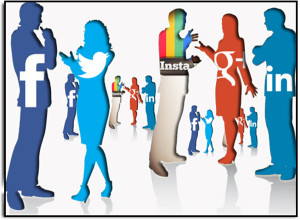
There have also been fandoms who have communicated and met each other by joining the same communities online, such as @TomHollandFansM on Facebook, or interacting for the same video game on Playstation Community. Social media platforms have also opened the doors for advocates of diverse causes. For instance, there have been those who backlash campaigns that portray false or almost impossible body images. Around 2014, retail company Victoria’s Secret had to change its campaign name, “The Perfect Body”, to “A Body for Everybody”, after a Change.org petition circulated around the web, which received about 27,000 signatures. This demonstrates the positive reinforcement that online campaigns can achieve and at a great scale.
Another example of positivity through social media platforms is during Barbie’s “Imagine The Possibilities” campaign, which demonstrates a video of young girls working in a variety of professional fields. One girl is a professor, while another one is a veterinarian. The video starts out with the question “What happens when girls are free to imagine they can be anything?” A little girl walks into a college-classroom and states “Hello my name is Gwen and I will be your professor today. And I will be talking about the brain”. This is encouraging young girls to “be anything”. Not only does this encourage young girls, it also helps build relationships between them and people that are strong supporters of this cause.
Actors like Hugh Jackman also help bring positivity to social media. He recently posted on his Instagram account, a picture of himself with a group of young students from Harlem Village Academies, stating: “I get to sing with these amazing kids from the @harlemvillageacademies tonight [May 9, 2018]. I love them all!” He used his social media platform and connections to share and support a positive cause (HVA Benefit).
A more recent event that has caused an uprising beyond social media is the case against lawyer Aaron Schlossberg. He threatened a Hispanic immigrant and employee of Fresh Kitchen in New York City earlier this week, by telling her he will call federal immigration officials to take her away for speaking in Spanish in front of him, when she should be speaking in English. The employee filmed him as he verbally discriminated her. City residents spoke up and have since bombarded Schlossberg’s Yelp Reviews with negative comments on his actions. Even city officials such as Congressman Adriano Espaillat filed their complaints against Schlossberg, which has caused Schlossberg to get kicked out of his work space. If Schlossberg damaged anyone’s reputation, it was his own, and demonstrated the power of the people through social media and beyond.
Is There Such A Thing As, “Using and Knowing Too Much Social Media?”
Sometimes, it is best to take a break from social media platforms. There are always those who constantly post what they are doing. It may not be absolutely everything that they do, but it can more than a good amount of material. Leonardo DiCaprio is well-known for keeping to himself to a good degree. He may have an Instagram account, but he posts for environmental causes, not about his personal life. Also, Psychology Today revealed that much research evidence suggests that “excessive use of the Internet by one partner in a relationship can negatively affect relationship quality.” Even more so, using social media a lot can prevent you from getting your daily activities done, such as exercising, finishing a good book, or even doing your everyday chores.
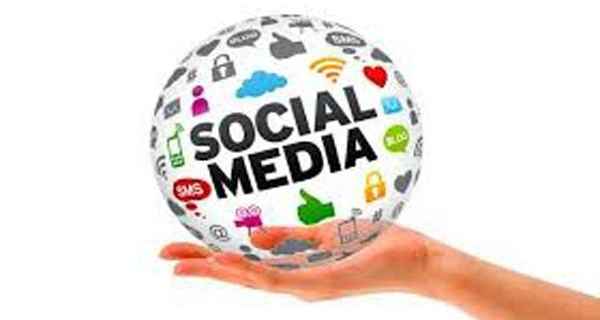
The excessive use of media has caused some psychologists to link some mental disorders to it. One of the mental disorders that have been linked to the excessive use of social media is the Narcissistic Personality Disorder. According to Mayo Clinic Staff on their online website, Narcissistic Personality Disorder is a “mental disorder in which people have an inflated sense of their own importance, a deep need for admiration and lack of empathy for others.” But behind this inflated sense of self-importance, there is a fragile self-esteem from people who usually take constant selfies. They have a need for people’s “likes” and comments, to help boost their self-esteem.
Since media is so engrained into our lives, a new field of research has been emerging in order to understand how media impacts us; it is called “Media Psychology”. This new emerging branch of psychology focuses on the relationship between human behavior and media. Some of the major sub areas of interest are identity, body image, social life, and an individual’s life goals.
Ultimately, one should ask oneself: “Will this enhance my life and my relationships, or will this potentially feed into negativity?” It is your job to decide what to post, who to share it with, when to post, and the impact it will have.
What do you think? Leave a comment.






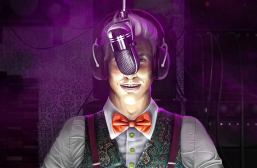




We don’t realise to what extent our news is filtered on social media…the EU Referendum has been a smack in the face and has helped me realise jut how much social media affects our impressions of the world around us.
Just turn the thing off.
Not easy for those who are literally addicted to it. Though I don’t advocate the methods that are apparently used in places like Japan to wean people off – there are better, gentler ways.
As Stamm stated, it is not that easy for some folks to let it go. Some people may be more prone to addiction, such as those with a family history of members who have had an addiction before. It might not be the same addiction, but it is one nonetheless. There’s also the matter of young adults being the most vulnerable, arguably, since they are just starting to build a sense of who they are.
What do they do in Japan?
Not sure about the details but it’s a bit like borstal for social media or game addicts. Some concerned parents put their kids there for a period of time and the regime is quite hard, the equivalent of cold turkey. Some of these guys literally break down in tears. Whether the results are long lasting I don’t know – maybe the same relapse ratio as for other drugs.
I’ve never been tempted by Facebook, Twitter and the like, for numerous reasons. I’m on LinkedIn for business purposes, but don’t go there so much nowadays because of the redesigned site and too many offers of courses and so on.
There’s also the matter that these social media apps are problematic to cell phone users now. If you check out the apps in your Google Play Store or Apple App Store, many people are complaining at all the requirements needed to be able to download social media apps. It involves a lot of invasion of privacy.
Twitter is great for certain things. Like following conflicts like in Syria you get a much more honest picture I believe. Instead of relying solely on western outlets to receive your news. When they in turn are using extremely suspect sources themselves.
I made a decision to not get involved in social media from the moment it appeared. I was around in the first days of Internet connectivity and while I loved it as a source of information, distributed software, interesting discussions, I clearly realized that the people who put their private lives online were making (to me) a disastrous mistake.
When I was young, we worried about the authorities spying on us. We read “1984” and “Brave New World” and that was how we imagined the future. The authorities drugging us and watching us through hidden cameras. We never thought for a moment that the people would drug themselves and volutarily post everything about themselves for all to see. Nobody saw that coming.
I am so, so glad I spent the first twenty years of my life without the web and a mobile phone.
Social media has its negatives & it’s positives. Ultimately it’s up to the user to decide how they want to be affected by all of it.
It’s a tricky thing, for the user to decide how they want to be affected by all of it, because everyone is different so each person can be affected differently by something. For instance, 2 people with a high and low self-esteem will each react differently if they are reached out to by their crush online (example).
I frankly doubt that the likes of Facebook and Twitter are interested in remedying the evil they have created and unleashed. Get rid of all these ‘must have’ gadgets…we lived hundreds of years without them.
In many ways social media is improving public discourse. The #metoo and Oxfam scandals (to mention but two) came to the surface very quickly, precisely because social media was able to connect people all over the world with shared experiences who could then make their revelations in a much less vulnerable environment.
It is no exaggeration to state that we have been living in hope that Facebook will go the way of Myspace. We are now on that threshold, it seems. Facebook has made a complete mockery of the Internet. The founders and shareholders should hang their heads in shame, and the latter should sell their shares as soon as possible to cut their losses.
I’m very sceptical about and suspicious of social media. I don’t use it.
A big worry for me is how all this ‘innocent’ information, like just ‘chatting’ amongst ‘friends’ can be stored by the ‘providers’ and who knows how its used in the future !
I would like to say that I don’t believe social media is good or bad in any way. I see it as another form of communication brought up in the midst of our 21st century. We can’t solely blame it for the reason why relationships seem shallow these days. The reasons why relationships seem shallow is because we don’t see the old fashion romanticized forms of communications we continue to see in film and tv shows. I expect that with more and more generations there will be newer more advanced forms of communications to be brought up that would make current social media activities seem romantic.
You bring up a great point of view, that we can’t solely blame social media as the reason why relationships seem shallow these days. However, I do give specific examples of how there are well-established relationships with couples that don’t find the need to post about their feelings for each other, etc. and they are quite happy together. In terms of the old-fashioned romanticized forms of communications (e.g., giving flowers, a box of chocolates), these are actions that the media tends to show, as you said. While we may not see all couples demonstrating these things online, it doesn’t necessarily mean that they aren’t doing it. You brought up another intriguing point; there could be improvements for social media platforms that make it more romantic, in the future. I am interesting in hearing what you believe those improvements could be.
I am interested to hear**
I understand it has been time since you wrote this reply, and I do hope you take more time to expand our discussion.
To begin with, I think I have to stress even further that the option of choosing social media as a mode of socializing does not define ones social habit as uninviting or shallow. What I mean by this is that there are hwalthy relationships that revolve around the social media as there are unhealthy relationships. Theres a recognizable spectrum. As for the old fashioned romanticized forms I brought up, there too are more examples of unhealthy relationships. We see and hear these countless times, where someone will become attached to someone they met at the bar or work place. My take home point is, social media should not be the nase spurce of how we look into when coming across what we see as shallow relationships.
Also, I think It is important that we work on a definition to what poor relationships are. From what I get from your article, which could be wrong, is that its the two parties need to publicly announce their elated states with one another. I would invite my definition of poor relationships as the unsuccessful compatability of two persons. With, by my definition, those who choose to announce their relationships are healthy since both accept the terms and behaviors and find pleasure in them. Will they be long lasting ones, no of course not. Hoewever, theres an agreement between them and their goals and needs are being met at that time.
The last point that I would like to bring up is my challenge on peoples champion idea that healthy social encounters rely on real time human reaction in the physical world. I challenge this idea with the notion that in the future,socializing can take place in the cypbernet with holograms. Imagine, an image that aspires form the form of light that can take your every detailed feature accurately portrayed. It will cut the middle man of traveling and going the distance to meet new people, or catch up with old friends. What more could anyone need when the illustrative being is there, as well as the sould of an individual being there in real time.
I know this comment could be a very long one, and I may have bombarded you with many ideas, but I do look forward to what you have to say.
I did not mean that simply by using social media, someone is automatically an uninviting or shallow person. I wanted to reinforce the notion that using social media is both good and bad, depending on the choices one makes.
I respect your definition of what is a healthy relationship. Of course not all relationships that are explicitly posted on social media are unhealthy. My point is that not every relationship is the same. You say that “…by my definition, those who choose to announce their relationships are healthy since both accept the terms and behaviors and find pleasure in them.” – I disagree because, as stated in the article, there can be couples or even just one partner that feel(s) insecure about the relationship, which causes them a huge need to post about their relationship for validation from the public. Again, not every couple is this way, but there is a good amount out there.
The possibility of our future holograms is both cool and scary. Personally, I would not like to talk to the hologram version of a friend, because I do not consider it to have her/his essence. It’d just be a projection coming from technology. If holograms were to exist and make up for walking to see our nearest neighbor, as you said, it be would unwise because walking is vital to our health. It could, however, help us if our friend is in another country. But ultimately, I believe it is always better to experience something with someone in person than through technology. You mention, “What more could anyone need when the illustrative being is there, as well as the soul of an individual being there in real time”, as I said earlier, I do not think the exact soul in there is a hologram. Also, I believe couples would rather be together in person, than through technology. Friends, I would imagine, would prefer to be physically together to watch a movie laying back on a good seat, than projecting themselves in front of a machine.
I do not mind your extensive comment, I am happy to hear what you have to say!
A phone is the consistently uninvited guest who always rocks up at dinner. I think many people have forgotten the benefits of interaction with others around food and the dinner table, and we should strive to come back to this.
Haha, I couldn’t agree more that the cell phone is the “uninvited guest” at dinner, among other social gatherings. It is a scary thing to see in people’s hands during those times, because it makes you realize how unsociable social media is making many people.
It’s also negatively impacting younger generations’ social behavior. There have been many incidents where I’ve seen parents give their cell phone to their child, as long as it stops their tantrums.
The section of this article that really captures my attention is the privacy in public topic because there are some people who are willingly to tell the world about their life, when certain parts of life should be labeled as confidential.
The tech companies need to be held accountable for content on their platforms.
People also need awareness of they are doing. It truly is mad.
Social media is a foreign land to me as I have never used it. I am not trying to be smug in any way but from its early days I never could see the purpose of it. Is being on here classified as social media- I’d just call it being social.
A good discussion to have, although a little surface level, I think there is much psychology has to say about the way people engage with social media and it would have been good to see the examples of where it has had strongly detrimental effects to everyday people. However, as it becomes an increasingly “normalised” aspect of life it will continue to have both positive and negative effects. I think though the biggest issue, which has not been delved into here, is the huge impact it is having on self-esteem and depression in many women world-wide.
While I do not think social media’s biggest #1 issue is its impact on self-esteem and depression, I’m glad you brought that up! I do believe those are perhaps among the top 5 negative impacts social media has, and would make for another great topic to write about! I did not delve a lot into self-esteem and depression, because I wanted the primary focus to be on social media’s impact on relationships.
Thanks for the timely article! I don’t allow my kids on social media, and I try to be careful with my usage of it. I catch myself on it just wasting time, and I hate that I do that. It has been helpful in keeping in touch with friends from college that I do not live near, but I can see how it can negatively affect relationships nearby if you aren’t intentional in investing in people face to face.
Your welcome, and I am very glad you enjoyed reading it! There have undoubtedly been a lot of people that have found themselves wasting valuable time on social media, and could have been doing other, meaningful things. I believe it is great to have a strict balance for youth; how long they’re allowed on social media, are the old enough to have an account, etc.
are they**
I agree 100%.
All these problems were foreseen by many of us, based simply on the precautionary principle.
Social media is great for staying connected but like everything else in life, there should always be a balance to how we use something.
This was a very well written and informed article, I totally agree on a lot of your points and feel that you have put a lot of effort and thought into writing it. I know myself that I am guilty of wasting hours online when I could have been doing something more productive!
I would just like to make two constructive points, I feel that you tried to cover a lot of content on a very very large topic and unfortunately it meant that there were points that I felt deviated from your original point, making it a bit more convoluted than necessary. This could definitely have been fixed with a bit more editing. Secondly, if you are going to cite articles you should reference them with a link and citation below.
Otherwise I really enjoyed this article, brilliant job!
Thank you!
In terms of the content covered, I did cover everything I wanted to, and I believe there are many points in social media that will mix together because of the many points of view possible.
very true. Social media can really make or break us.
Never ceases to amaze me when I go out to eat or other things and all I see are people staring at their phones instead of each other. I see people walking down the street texting or Facebooking instead of paying attention to where they are going.
So true!
I think an interesting point that you mention is the identity aspect of social media. Whenever someone posts something, they post in a manner they want to present themselves, whether that be as a care-free individual or a motivating person or a comical person. I think that falls under “Media Psychology” and it makes me wonder if then media is affecting how we present ourselves outside of it too. I think the biggest examples are SnapChat (which I’m surprised wasn’t mentioned) and Instagram. People go to many lengths to present themselves in a certain manner.
Thank you! I am glad you enjoyed the article, particularly the identity aspect of social media. I did not mention SnapChat because I wanted to focus on the relationship aspect of it, not on what each social media platform can or cannot do for relationships.
This topic definitely falls under Media Psychology, and I do not think it will be going away anytime soon. How social media affects our presentation of ourselves outside of it would make for another great topic!
It is an addiction.
This article gives a nice balance to identifying both the strengths and pitfalls of social media. In an ever changing and technologically advancing world, it’s important for us to keep having this conversation!
Thank you very much! I am happy to contribute to this conversation, which will continue impacting every generation present and those to come.
I’m actually studying Digital Cultures at University and this idea of social media and its advantages and disadvantages in everyday life etc is what we have to think about on a daily basis and theres so many aspects to it like the relational maintenance we engage in to be seen by more users online. As society and social media are turning into one being these days this is an important discussion to keep having.
The fact is social media sites have become so much ingrained in our lives and the society as a whole.
Great overview of a complicated issue that is very prevalent in our contemporary society. As far as the academic community, the consensus is rather grey. Technology has helped eliminate distance, strengthen ties across the globe, and has helped people connect in seconds. However, the breaking of relationships is often associated with being overwhelmed with the vast amounts of information we process on a day to day basis, which in turn affects our attention spans and ultimately our ability to maintain relationships. Hopefully, this is a learning curve that society will learn to manage!
Social media is run by data mining companies…which is essentially make money by gathering information from your social activities and selling that information for the benefit of advertisers. Not a healthy foundation for any relationship to grow from…however, there can be good in social media, if people keep the above facts in mind and limit their time using it…real, deep, satisfying relationships will still need real surroundings, and real, shared experiences to grow…
It’s true, companies are the sole providers of our information. It’s alarming to see how huge of an impact they have on what’s advertised to us. Sometimes, companies may know more of your tastes if you’re constantly on it, than actual friends/acquaintances. Like you said, limited use is always advisable!
Social media impacts as much as you allow it to and in which way (positive or negative).
Don’t give your life control to social media platforms.
Very true, sometimes people may underestimate just how much social media has taken over. It’s all in the person’s mind; if you think positive thoughts, things will always go a lot smoother.
This is a great article that does a good job at highlighting the pros and cons of social media. Personally, I believe that ultimately our society is one that revolves around social media whether we agree with it or not therefore it has an undeniable role within most modern day relationships. Western society is one that has evolved to be primarily technological therefore it is hard to avoid the use of social media. Perhaps one way of dealing with its prominent consequences is to learn and promote the moderate use of social media without being overtly judgemental to those who face issues regarding their self-esteem, obsession with their online platforms, and etc. Social media does play a role in our lives and relationships but for the most part it is up to us to determine how much it affects our lives. As they say, “moderation is key”
Thank you! I am really glad you enjoyed the article. I agree; a lot of people may be overtly judgmental, when they really have no right to do so. Having a nice balance is the way to go because there is no doubt that social media is here to stay.
I really liked this article and it covers a topic in our society that has become so popular. With that being said, it is important for people to understand the positives and negative of social media before they go and post. This article does a good job highlighting those aspects. Also, now it is not uncommon to see a group of people all together on their phones, which you mentioned, and I think this is a problem that needs to be addressed.
I was just having a conversation with a friend about the power of social media. We are the firsts to experience this kind of connection so it is hard to navigate
This is a very interesting article and it highlights many important aspects of our Information Technology Era. In today’s society, we consume information at quicker pace than before and are continuously exposed to social stimuli through our social media platforms. The over exposure to information in virtual realities can have positive and negative consequences in our daily lives. The social solidarity created through these networks of communication can have a simultaneous global impact as it makes long-distance communication more easily available, therein serving as the base for social movements such as the #BlackLivesMatter #MeToo #LoveIsLove. What starts as a “viral” hashtag becomes the catalyst for waves of collective effort, donations, protests, and an overall demand for moral and ethical action. I think the field of “media psychology” will most definitely grow in the upcoming years, as new generations continue to grow in the age of Snapchat, Twitter, Instagram, Facebook and YouTube.
I really enjoyed reading this article, because it is so timely considering how incredibly fast social media platforms are gaining influence. Media has a lot of effects on the population, and many theories have been developed as to how social media effects our mental and emotional health, not to mention how it effects our social interactions with people in real life. Definitely a lot of positive things are on social media and are shared, but more often than not, people are more attracted to the negative, whether its celebrity drama, body image posts, or any form of cyber bullying concerning thoughts or appearances. It is up to the user to determine what kind of social media experience they want to have, and I thought your article did a great job with this.
I admire your approach to these emerging issues we currently face in our digital environments. The emergence of new media writing has brought into being the combination of the affordances of new digital technologies. The use of new digital technologies provides the opportunity to engage in social media through the possibility of developing an intimate relationship between the reader and post itself. This effect is heightened through the combined media style to evoke emotion through the use of music, voice-overs, video clips and photographs so that the audience can connect with their senses to see and hear – and provides a sense of social reality, and this is what presents the risks and multitude of harm to individuals.
After reading this article I feel compelled to delete my social media…
It is not easy to stop using social media suddenly, however, being aware of the fact that it can become a serious addiction is an important step to start regulating its use. Personally, I have had stages when I am addicted to a certain app, like twitter, and after realizing how much it can actually consume me, I deleted it.
This articles are important to raise this awareness! Thank you
You’re welcome, and thank YOU for reading!
Certainly, if we don’t manage our time wisely, a lot of time will be lost to social media use.
The approach is very nuanced as well as carries a balance between the pros and cons of social media. I wouldnt say all that is said here is unknown or un-thought of. But it gives us a blatant picture about social media with the hope that with another attempt to lay bare the effects of social media on society, people will be more cautious and conscious of its use
I personally believe that ultimately social media does more bad than good, but thank you for sharing both sides of this phenomenon!
Thank you for your thoughts, Celine! I’m happy to hear you enjoyed reading about both perspectives (i.e., positives and negatives of social media). Please share why you think social media does more bad than good!
All of the positives of social media are miniscule compared to the negatives. The hacking, the tracking, the sidebars full of targeted BS to make you buy or fly, or vote, the way the corporate recommendation software wants you to .. and the next thing you know you’re living in a dictatorship of the oligarchs. Hooray for us. All because we let them into our bedrooms and boardrooms and told them of our slightest whims. Look around, society is polarizing and deteriorating into malicious and cruel mobs and it’s fascist led social media leading the way. -blue
I personally see social media as a tool in which we still don’t know the full implications and have not fleshed out its customs.